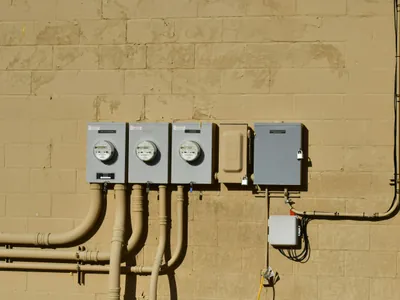Energy Efficiency: How to Reduce Your Home's Energy Consumption

Reducing your home's energy consumption doesn't require major renovations or expensive equipment. Simple, practical strategies can significantly lower your utility bills while reducing your environmental impact.
🌡️ Smart Temperature Management
Heating and cooling account for the largest portion of most homes' energy use.
💡 Lighting Efficiency Upgrades
Switching to energy-efficient lighting can reduce your lighting costs by up to 75%.
🔅 LED Bulbs
Use 75% less energy than traditional incandescent bulbs and last 25 times longer
💡 Motion Sensors
Automatically turn lights off when rooms are unoccupied
🌞 Natural Light
Maximize natural light during the day to reduce artificial lighting needs
⏰ Timer Controls
Set lights to automatically turn off at specific times
🏠 Home Insulation & Sealing
Proper insulation prevents energy loss and maintains consistent indoor temperatures.
A well-insulated home can reduce heating and cooling costs by 15-30% annually, making it one of the most cost-effective energy upgrades.
Insulation Priorities
- Check attic insulation (should be R-30 or higher)
- Seal gaps around windows and doors with weatherstripping
- Add foam strips to electrical outlets and switches
- Insulate basement walls and floors
- Install window treatments for better temperature control
⚡ Appliance Efficiency
Choose energy-efficient appliances and use them wisely to maximize savings.
🏷️ Energy Star Rating
Look for Energy Star certified appliances that meet strict efficiency standards
💧 Water Heating
Install energy-efficient water heaters and low-flow fixtures
❄️ Refrigerator Maintenance
Keep refrigerator coils clean and freezer full for optimal efficiency
🌱 Renewable Energy Options
Incorporate renewable energy sources to reduce your reliance on traditional power.
💰 Financial Incentives & Rebates
Government and utility programs can help offset the cost of energy-efficient upgrades.
Available Incentives
- Federal tax credits for solar installations
- Utility rebates for energy-efficient appliances
- State programs for home insulation and sealing
- Local incentives for LED lighting upgrades
- Energy audit subsidies through local governments
📊 Measuring Your Success
Track your energy usage and savings to stay motivated and identify areas for improvement.
📈 Energy Monitoring
Install smart meters or monitoring devices to track real-time usage
📊 Bill Analysis
Compare utility bills before and after efficiency upgrades
🎯 Goal Setting
Set specific reduction targets (e.g., 20% energy savings)
Start your energy efficiency journey today with a professional energy audit from The Box Advantage Group. We'll identify the most effective upgrades for your specific situation and help you save money while protecting the environment.
Tags
Related Articles
Discover more articles that might interest you from our comprehensive collection.
Ready to Experience The Box Advantage?
Join hundreds of satisfied customers who trust us with their home and business needs.


